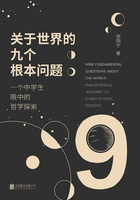
Ⅰ.Biography
Edmund Husserl was born on April 8th, 1859 in Prossnitz, a small town in Austria. He studied at the famous University of Leipzig, the University of Berlin, and the University of Vienna. Different from other philosophers, Husserl himself studied in the Department of Mathematics in his esrly universing life, and later studied philosophy with Brentano.
In the eyes of many people, Husserl, as a philosopher, is qualified to occupy a place among the greatest sages in the world. With his own efforts, he liberated the thinking of philosophers, made a profound contribution to the development of intentionality theory, and creatively put forward the phenomenology movement, one of the most important philosophical movements in the 20th century. Unfortunately, because Husserl's writing style is very obscure and has a high reading threshold,Husserl's readers were once confined to scholars and philosophical circles, and he was not familiar to the general public. Husserl is not only a great philosopher, but also a noble man. He regards philosophy as his lifelong career and mission, and calls on people to regain their trust in reason through his own efforts. Husserl is a skeptic to some extent in practice. He opposes the dogmatism of philosophy and the arrogance of chauvinism, as well as the prevailing relativism or the worship of a certain cultural language. Husserl, like a scholar from the classical era, lived in an eternal world ideally, and believed that the pursuit of philosophy should be universal and eternal. Husserl has been practicing his motto “never give up eternity for the sake of the times” all his life,which is reflected in his philosophical pursuit and a portrayal of his life.